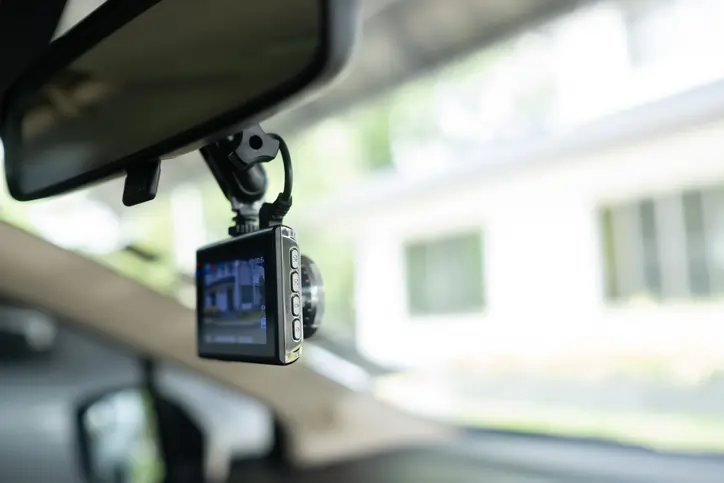
In the modern business landscape, fleet management is a critical aspect of operations for many companies. Ensuring the safety of vehicles and drivers while efficiently handling insurance claims can significantly impact a business’s bottom line. Vehicle camera systems, including dash cams, have emerged as vital tools in achieving these objectives. This article explores how vehicle camera systems enhance safety and streamline insurance claims processes, providing substantial benefits for businesses.
Enhancing Safety on the Road
Vehicle camera systems play a crucial role in promoting safety across fleets. These systems monitor and record real-time activities within and around the vehicle, providing invaluable data that helps improve driver behaviour and road safety.
- Driver Behaviour Monitoring: By continuously recording, vehicle cameras can capture instances of speeding, harsh braking, and other unsafe driving practices. Fleet managers can review this footage to identify and address problematic behaviour, providing targeted training and corrective measures. This proactive approach not only improves driver performance but also reduces the likelihood of accidents.
- Accident Prevention: The presence of vehicle cameras acts as a deterrent to reckless driving. Knowing that their actions are being recorded, drivers are more likely to adhere to safety protocols and drive responsibly. This heightened awareness contributes to a safer driving environment for both the fleet and other road users.
- Emergency Assistance: In the event of an accident or emergency, vehicle camera systems can provide real-time data to emergency responders. This information can be crucial in delivering timely and appropriate assistance, potentially saving lives and minimising damage.
Dash Cams: A Critical Component
A pivotal part of vehicle camera systems is the dash cam. Dash cams are strategically mounted on the dashboard to provide a clear, unobstructed view of the road ahead. These cameras are essential for capturing incidents such as collisions, near-misses, and traffic violations.
- Evidence Collection: The footage recorded by dash cams can serve as vital evidence in the event of an accident. This visual proof can help determine fault, resolve disputes, and protect the business from false claims. By providing clear, unbiased evidence, dash cams ensure that the correct parties are held accountable.
- Insurance Benefits: Insurance companies often recognise the value of dash cams in reducing fraudulent claims and accurately assessing accident circumstances. As a result, businesses equipped with dash cams may benefit from lower insurance premiums and expedited claims processing.
Facilitating Efficient Insurance Claims
Vehicle camera systems significantly streamline the insurance claims process, making it more efficient and transparent.
- Accurate Incident Reporting: The detailed footage provided by vehicle cameras allows for precise incident reporting. Fleet managers can use this footage to reconstruct accidents, ensuring that all relevant details are accurately documented. This level of detail is crucial for submitting comprehensive insurance claims.
- Reducing Fraud: Fraudulent insurance claims are a significant concern for businesses. Vehicle camera systems help mitigate this risk by providing indisputable evidence of incidents. By capturing the exact circumstances of an accident, these systems prevent fraudulent claims and ensure that only legitimate claims are processed.
- Streamlining Claims Processing: The clarity and detail provided by vehicle camera footage can expedite the insurance claims process. Insurers can quickly assess the recorded evidence, reducing the time required to process claims. This efficiency not only speeds up the resolution of claims but also minimises downtime for fleet vehicles, ensuring that business operations continue smoothly.
Future Trends in Vehicle Camera Systems
The future of vehicle camera systems is promising, with several technological advancements on the horizon:
- AI Integration: Artificial Intelligence will enhance the capabilities of vehicle cameras, enabling predictive maintenance and advanced analytics. AI can analyse driving patterns and predict potential issues before they become serious problems, further enhancing safety and efficiency.
- Blockchain Technology: Blockchain can provide secure, tamper-proof storage of vehicle camera data, ensuring its integrity and reliability. This technology can be particularly useful in verifying the authenticity of footage used in insurance claims.
- Advanced IoT Applications: The Internet of Things (IoT) will lead to more interconnected vehicle systems, providing comprehensive monitoring and data analysis. IoT-enabled vehicle cameras can integrate with other sensors and systems, offering a holistic view of fleet operations.
Conclusion
Implementing vehicle camera systems, including advanced dash cams, offers numerous advantages for businesses. These systems enhance safety by monitoring driver behaviour and preventing accidents, while also facilitating efficient and accurate insurance claims processing. As technology continues to evolve, vehicle camera systems will become even more integral to fleet management, providing invaluable insights and ensuring the safety and efficiency of business operations.
By investing in vehicle camera systems, businesses can protect their assets, reduce costs, and enhance overall operational efficiency. The benefits of these systems extend beyond immediate safety improvements, offering long-term gains in productivity, accountability, and customer trust. For business owners, the decision to implement vehicle camera systems is a strategic move that can drive significant improvements across their operations.


